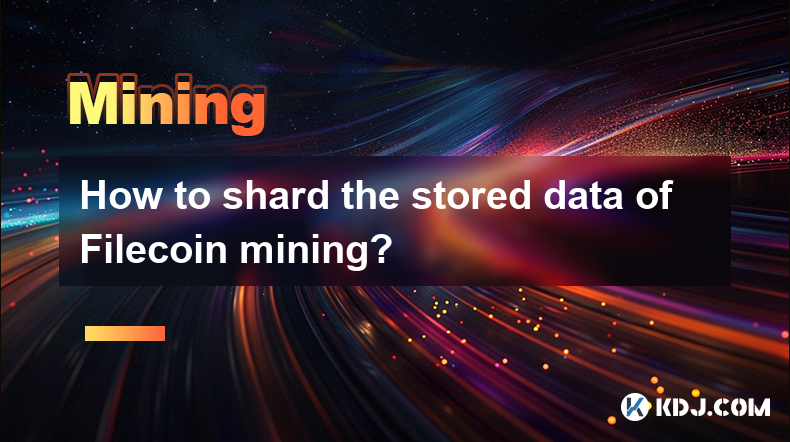-
 Bitcoin
Bitcoin $92,791.8043
-1.35% -
 Ethereum
Ethereum $1,755.1542
-3.41% -
 Tether USDt
Tether USDt $1.0002
-0.01% -
 XRP
XRP $2.1670
-5.40% -
 BNB
BNB $597.8018
-2.59% -
 Solana
Solana $148.6654
-3.10% -
 USDC
USDC $1.0000
0.00% -
 Dogecoin
Dogecoin $0.1741
-5.86% -
 Cardano
Cardano $0.6943
-2.44% -
 TRON
TRON $0.2457
-0.42% -
 Sui
Sui $3.0286
2.61% -
 Chainlink
Chainlink $14.4764
-4.73% -
 Avalanche
Avalanche $22.0152
-4.12% -
 UNUS SED LEO
UNUS SED LEO $9.2234
2.05% -
 Stellar
Stellar $0.2687
-2.01% -
 Toncoin
Toncoin $3.1166
-0.77% -
 Shiba Inu
Shiba Inu $0.0...01320
-3.99% -
 Hedera
Hedera $0.1818
-3.34% -
 Bitcoin Cash
Bitcoin Cash $347.4785
-3.75% -
 Polkadot
Polkadot $4.0211
-3.26% -
 Litecoin
Litecoin $81.4299
-4.20% -
 Hyperliquid
Hyperliquid $17.9559
-5.59% -
 Dai
Dai $1.0000
-0.01% -
 Bitget Token
Bitget Token $4.3936
-4.77% -
 Ethena USDe
Ethena USDe $0.9992
-0.02% -
 Pi
Pi $0.6496
-3.57% -
 Monero
Monero $224.5697
-2.17% -
 Uniswap
Uniswap $5.7648
-4.97% -
 Pepe
Pepe $0.0...08565
-7.33% -
 Aptos
Aptos $5.3125
-1.27%
How to shard the stored data of Filecoin mining?
Filecoin's data sharding distributes data across many miners for redundancy, using cryptographic techniques to ensure data integrity. Miners don't control sharding; the network automatically manages it, balancing data across nodes and leveraging replication for resilience.
Feb 28, 2025 at 10:18 pm

Key Points:
- Filecoin's data sharding strategy focuses on distributing data across multiple nodes for redundancy and efficiency. This isn't a simple split; it involves sophisticated techniques to ensure data availability and retrieval.
- Sharding isn't directly controlled by miners; it's a feature of the Filecoin network's architecture. Miners participate by storing and retrieving pieces of sharded data.
- The process leverages cryptographic techniques to ensure data integrity and prevent malicious actors from manipulating or deleting data.
- Understanding sector size and replication factors is crucial for comprehending how data sharding works in practice.
How to Shard the Stored Data of Filecoin Mining?
Filecoin's distributed storage system relies heavily on data sharding to ensure the resilience and scalability of the network. Unlike simply splitting a file into equal parts, Filecoin's sharding is a more complex process. It involves breaking down data into smaller, manageable pieces (shards), distributing these shards across multiple storage providers (miners), and employing redundancy mechanisms to protect against data loss. The process is largely automated and handled by the Filecoin network itself. Miners don't directly manage the sharding process but participate by storing and retrieving designated shards.
The process begins with a client uploading data to the Filecoin network. The network then automatically handles the sharding process. This involves breaking the data into smaller pieces, adding redundancy through replication, and distributing these shards across numerous miners. The exact number of shards and their replication factor depend on several parameters, including the data size and the client's desired redundancy level. This decentralized approach ensures that even if some miners go offline, the data remains accessible.
Filecoin uses a sophisticated cryptographic system to ensure the integrity of the sharded data. Each shard is cryptographically sealed, making it computationally infeasible to alter the data without detection. The network constantly verifies the integrity of the stored data, identifying and penalizing miners who fail to maintain the integrity of their assigned shards. This system is crucial for maintaining the trustworthiness of the network. The cryptographic hashing ensures data integrity, while the distributed nature of the storage protects against single points of failure.
The size of a sector, a unit of storage on Filecoin, plays a vital role in data sharding. Sectors are typically large, encompassing many shards. The size of the sector determines the amount of data a miner can store and contributes to the overall network capacity. Larger sectors generally offer better efficiency for miners, but also require more storage space. Choosing the optimal sector size involves balancing storage costs and network efficiency.
Replication factors also impact the sharding strategy. The replication factor determines how many copies of each shard are stored across different miners. Higher replication factors offer greater data redundancy, improving resilience against data loss but also increasing storage costs. Clients can specify their desired replication factor when uploading data, balancing resilience with cost. The network automatically distributes and manages these replicated shards across different nodes.
Miners don't directly control the sharding process; they are assigned shards by the network based on their available storage capacity and their performance metrics. The network's consensus mechanism determines which miners receive which shards, aiming for a balanced distribution across the network. This prevents any single miner or group of miners from having disproportionate control over the data. Their role is to securely store and retrieve the allocated shards when requested.
Data retrieval involves the network identifying the location of the required shards and retrieving them from the respective miners. The network intelligently routes requests to ensure efficient data retrieval. The process utilizes cryptographic verification to ensure the retrieved data matches the original uploaded data. The system automatically handles data reconstruction if some shards are unavailable, leveraging the redundancy built into the sharding process.
The selection of miners to store shards is crucial for the overall network performance. The network employs various mechanisms to select miners based on factors such as their storage capacity, reliability, and network connectivity. This ensures a robust and efficient data distribution system. This selection process helps prevent bottlenecks and maintains data availability. The algorithm constantly adapts to changes in the network, ensuring optimal performance.
Filecoin’s sharding approach utilizes techniques like erasure coding, a sophisticated error-correcting code. This allows for efficient data reconstruction even if a significant portion of the shards are lost. It helps minimize storage requirements while maintaining high data availability. This technology ensures data redundancy without requiring excessive replication.
Maintaining the integrity and availability of sharded data requires constant monitoring and verification. The Filecoin network uses various mechanisms to ensure that miners are fulfilling their obligations and maintaining the integrity of the stored data. The network employs cryptographic verification and periodic audits to detect and address any issues. This helps maintain the trust and reliability of the network.
Frequently Asked Questions:
Q: Can I choose which miners store my sharded data?
A: No, you cannot directly choose specific miners. The Filecoin network automatically distributes your data across multiple miners based on various factors like storage capacity, reputation, and network connectivity.
Q: What happens if a miner goes offline?
A: The Filecoin network is designed to handle miner outages. Data is replicated across multiple miners, so even if one miner goes offline, the data remains accessible from other miners holding the replicated shards.
Q: How secure is the sharded data?
A: Filecoin employs cryptographic techniques to ensure data integrity. Each shard is cryptographically sealed, and the network constantly verifies the integrity of stored data, making it extremely difficult to tamper with the data without detection.
Q: What is the role of replication in Filecoin sharding?
A: Replication creates multiple copies of each shard, distributed across different miners. This increases redundancy and resilience against data loss, ensuring data availability even if some miners fail.
Q: How does Filecoin handle data retrieval?
A: The network intelligently routes data retrieval requests to the miners holding the required shards. Cryptographic verification ensures the integrity of the retrieved data. The system can reconstruct data even if some shards are unavailable due to replication and erasure coding.
Q: How are miners rewarded for storing sharded data?
A: Miners are rewarded in FIL tokens for storing and retrieving data. The amount of reward depends on factors such as storage capacity, the duration of storage, and the quality of service provided.
Disclaimer:info@kdj.com
The information provided is not trading advice. kdj.com does not assume any responsibility for any investments made based on the information provided in this article. Cryptocurrencies are highly volatile and it is highly recommended that you invest with caution after thorough research!
If you believe that the content used on this website infringes your copyright, please contact us immediately (info@kdj.com) and we will delete it promptly.
- After Years of "PUA", Zora Finally Issued a Coin, but the Community Users Did Not Get the "Big Result" They Wished For
- 2025-04-24 21:20:11
- Bitcoin (BTC) Has Exceeded the Realized Price of Short-term Holders, Exciting Analysts
- 2025-04-24 21:20:11
- PEPE Price Surge Re-enters the Crypto Spotlight with a 17% Breakout
- 2025-04-24 21:15:12
- US President Donald Trump Signed an AI Executive Order
- 2025-04-24 21:15:12
- Spot Bitcoin ETF inflows are at their highest since January 2025.
- 2025-04-24 21:10:12
- Mantle Network Launches MI4, a Institutional-Grade Digital Asset Index Fund Targeting $400M Market Gap
- 2025-04-24 21:10:12
Related knowledge

How to judge the stability and reliability of the mining pool?
Apr 19,2025 at 02:08pm
When engaging in cryptocurrency mining, choosing the right mining pool is crucial for maximizing your returns and ensuring a stable mining experience. The stability and reliability of a mining pool can significantly impact your overall success in mining. Here, we will explore the key factors to consider when evaluating the stability and reliability of a...

How to deal with abnormal noise during mining machine operation?
Apr 17,2025 at 01:35am
Mining machines are essential tools for cryptocurrency miners, but they can sometimes produce abnormal noises that may indicate underlying issues. Understanding how to identify and address these noises is crucial for maintaining the efficiency and longevity of your mining equipment. This article will guide you through the process of dealing with abnorma...

How to choose the right ASIC mining machine model?
Apr 21,2025 at 08:00am
Choosing the right ASIC mining machine model is crucial for maximizing your returns in cryptocurrency mining. The market offers a variety of ASIC miners, each with its own set of specifications and performance metrics. Understanding the key factors that influence your choice can help you make an informed decision that aligns with your mining goals and b...

How to maintain anonymity when mining?
Apr 17,2025 at 06:01pm
Maintaining anonymity when mining cryptocurrencies is crucial for many miners who wish to protect their privacy and security. This article will guide you through various strategies and tools that can help you achieve a high level of anonymity while engaging in mining activities. Understanding the Importance of Anonymity in MiningAnonymity in the context...

How to automate mining tasks through scripts?
Apr 18,2025 at 01:29pm
In the world of cryptocurrency, mining remains a crucial activity for generating new coins and securing blockchain networks. Automating mining tasks through scripts can significantly enhance efficiency and reduce manual labor. This article delves into the intricacies of automating mining tasks, providing a comprehensive guide on how to achieve this usin...

How to switch mining algorithms in the mining pool?
Apr 18,2025 at 12:00pm
Switching mining algorithms in a mining pool can be a strategic move for miners looking to optimize their mining operations. This process involves several steps and considerations, and understanding how to navigate it can significantly impact a miner's efficiency and profitability. In this article, we will explore the detailed steps required to switch m...

How to judge the stability and reliability of the mining pool?
Apr 19,2025 at 02:08pm
When engaging in cryptocurrency mining, choosing the right mining pool is crucial for maximizing your returns and ensuring a stable mining experience. The stability and reliability of a mining pool can significantly impact your overall success in mining. Here, we will explore the key factors to consider when evaluating the stability and reliability of a...

How to deal with abnormal noise during mining machine operation?
Apr 17,2025 at 01:35am
Mining machines are essential tools for cryptocurrency miners, but they can sometimes produce abnormal noises that may indicate underlying issues. Understanding how to identify and address these noises is crucial for maintaining the efficiency and longevity of your mining equipment. This article will guide you through the process of dealing with abnorma...

How to choose the right ASIC mining machine model?
Apr 21,2025 at 08:00am
Choosing the right ASIC mining machine model is crucial for maximizing your returns in cryptocurrency mining. The market offers a variety of ASIC miners, each with its own set of specifications and performance metrics. Understanding the key factors that influence your choice can help you make an informed decision that aligns with your mining goals and b...

How to maintain anonymity when mining?
Apr 17,2025 at 06:01pm
Maintaining anonymity when mining cryptocurrencies is crucial for many miners who wish to protect their privacy and security. This article will guide you through various strategies and tools that can help you achieve a high level of anonymity while engaging in mining activities. Understanding the Importance of Anonymity in MiningAnonymity in the context...

How to automate mining tasks through scripts?
Apr 18,2025 at 01:29pm
In the world of cryptocurrency, mining remains a crucial activity for generating new coins and securing blockchain networks. Automating mining tasks through scripts can significantly enhance efficiency and reduce manual labor. This article delves into the intricacies of automating mining tasks, providing a comprehensive guide on how to achieve this usin...

How to switch mining algorithms in the mining pool?
Apr 18,2025 at 12:00pm
Switching mining algorithms in a mining pool can be a strategic move for miners looking to optimize their mining operations. This process involves several steps and considerations, and understanding how to navigate it can significantly impact a miner's efficiency and profitability. In this article, we will explore the detailed steps required to switch m...
See all articles























































































